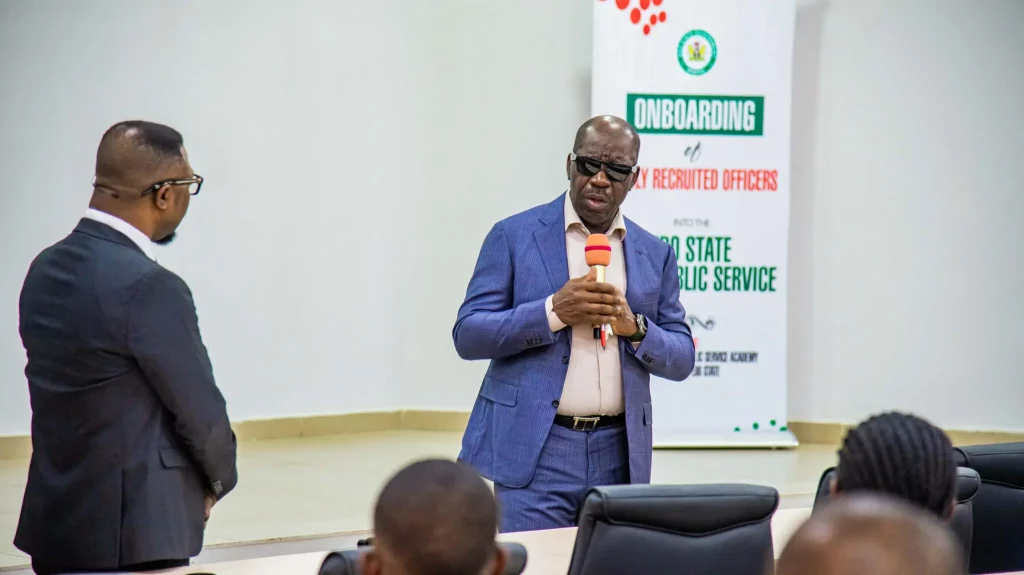To safeguard Edo State against the circulating variant polio virus (cVPV2) outbreaks that have occurred in other parts of the country, the Edo State Government, in collaboration with the Edo State Primary Health Care Development Agency (EDSPHCDA), is set to initiate the second round of Emergency Outbreak Response to Polio Virus.
The aim of this campaign is to prevent the possibility of mutations that could lead to polio cases among children under five years of age.
During an emergency meeting of the Social Mobilization Committee held in Benin City, Dr. Omosigho Izedonmwen, the Executive Secretary of the EDSPHCDA, urged committee members to rally together and ensure the success of this crucial campaign.
He said, “Health is a shared responsibility among all individuals, as the actions or inactions of a single person have a ripple effect on the larger society. Therefore, wherever we are, we should work to promote health from an attitude perspective rather than a medical one in order to eliminate outbreaks of diseases like polio and Lassa fever.”
Dr. Gideon Iraoyah, the Director of Disease Control and Immunisation, informed the committee members that the Second Outbreak Response (OBR 2) targeting the circulating variant polio virus (cVPV2) would take place from 21st to 24th January 2023. The novel Oral Polio Vaccine, type 2 (nOPV2), will be administered across all local government areas in the state during this period.
Dr. Iraoyah called on committee members to utilize their roles and influence to ensure that all eligible children in their communities, institutions, organizations, groups, unions, and associations receive the vaccine, as immunization is crucial for preventing deadly childhood diseases.
Elfreda Enogie Omoigui, the State Immunization Officer, highlighted the importance of complete compliance from everyone to maintain the state’s successful prevention of the circulating variant polio virus. She noted that during the first outbreak, the state achieved 107 percent compliance, with only a few children missing out on immunization due to non-compliance from certain religious bodies.
Omoigui emphasized the need for unwavering collaboration from all stakeholders to keep the virus at bay.
To ensure the smooth implementation of the campaign, health workers across all local government areas have already undergone training.
Additionally, independent monitors and vaccine accountability officers will receive training this week to facilitate the process. The Social Mobilization Committee comprises partners such as the World Health Organization (WHO), AFENET, Redcross, and Solina Group, as well as representatives from traditional leaders, religious bodies, associations, line MDAs, and the media.
Healthcare workers will be stationed at all Primary Health Care centers, visiting households, schools, crèches, churches, mosques, markets, motor parks, and other strategic locations where children between the ages of 0-59 months can be found, administering the two drops of the Oral Polio Vaccine.
In light of the ongoing Lassa Fever outbreak, Mrs. Irene Uabor, the Health Education Officer of the EDSPHCD, urged proactive measures to curb its spread.
She stressed the importance of seeking early medical attention from qualified healthcare professionals if any symptoms arise. Uabor acknowledged the support of various partners and stakeholders in the committee, emphasizing their critical role in raising awareness and ensuring vaccine uptake.

